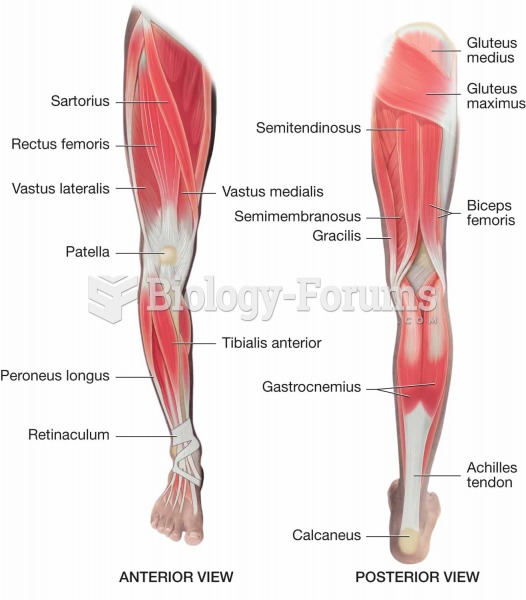|
|
|
Although not all of the following muscle groups are commonly used, intramuscular injections may be given into the abdominals, biceps, calves, deltoids, gluteals, laterals, pectorals, quadriceps, trapezoids, and triceps.
More than 150,000 Americans killed by cardiovascular disease are younger than the age of 65 years.
Human kidneys will clean about 1 million gallons of blood in an average lifetime.
The heart is located in the center of the chest, with part of it tipped slightly so that it taps against the left side of the chest.
Though methadone is often used to treat dependency on other opioids, the drug itself can be abused. Crushing or snorting methadone can achieve the opiate "rush" desired by addicts. Improper use such as these can lead to a dangerous dependency on methadone. This drug now accounts for nearly one-third of opioid-related deaths.







